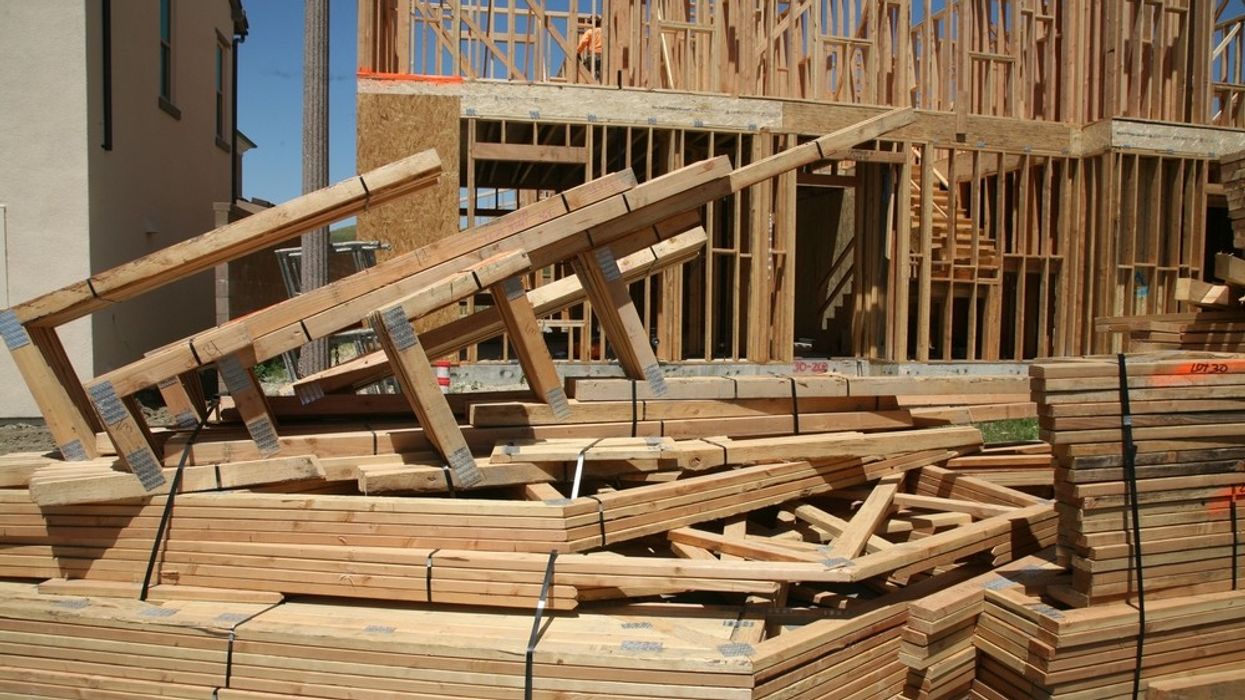The high cost of regulations, red tape, and myriad government charges have contributed to a dysfunctional housing market and made it increasingly difficult to build new homes people can afford.
Alarmingly, a report from RBC, titled The Great Rebuild: Seven ways to fix Canada’s housing shortage, indicated more than half of 1.9M new households by 2030 will not be able to buy a home. To put that in perspective, that’s equivalent to almost all the households in Atlantic Canada.
To meet future growth, the report notes that housing completions would have to rise from an average of 218,000 in the past three years to about 320,000 annually over the 2023-2030 period. But we are nowhere near that figure. Our all-time peak for completions was 257,000 in 1974.
CMHC figures we need to build an additional 5.8M homes by 2030 to bring housing to an affordable level. But nationally, new home construction is expected to be 50,000 less this year than in 2023.
Sadly, the present housing supply and affordability crisis has taken away the Canadian dream for many. We must take immediate action or the situation will likely reach even more alarming levels.
To significantly boost housing construction, and bring down the cost of new homes, we must remove the regulatory hurdles that are contributing to the problem and substantially reduce the plethora of exorbitant taxes, fees, and levies that are unfairly imposed on new home buyers.
It’s the only way forward.
Runaway bureaucracy, for one, is slowing residential development and adding to the price tag of new homes. There is a need for full-scale reform of the system at all three levels of government.
In many ways, we are still in the dark ages when it comes to dealing with housing proposals. Developers and builders often must wade through a labyrinth of approvals to get shovels in the ground.
Our zoning and approvals processes are slow, antiquated, and cumbersome and there remains too much red tape which only stands in the way of new housing.
It is mind-boggling and underproductive, a time-wasting exercise and a useless drain on resources. Obtaining approvals and permits in major cities like Toronto can take years, not weeks or months.
Unfortunately, Toronto has become the poster child for bureaucracy and lengthy delays. The six-month average timeline to complete the pre-application consultation process is 44 days while the average for combined Official Plan Amendment/Zoning Bylaw applications is 115 days.
Meanwhile, according to a progress report on 18 affordable housing projects identified for construction in the city, incredibly none have actually been started – in spite of the fact there are fewer applications due to current market realities, and more planning staff have been hired.
Governments must immediately implement major changes in municipal planning and development divisions across Ontario that will specifically expedite residential housing applications and streamline approvals. There must also be mandated specific timelines and adjudicative technical panels and agencies must be required to make decisions in a timely manner.
The untold multitude of crippling government charges on new homes must also be addressed.
Presently, 31% of the cost of a new home is due to taxes, fees, and levies. So, if you buy a $1M new home, $310,000 of that is for taxes, fees, levies, and development charges. If you amortize that amount over a 30-year mortgage, it adds up to a substantial sum.
Taxes, fees, and levies on new housing in the Greater Toronto Area are now the highest in North America and must be lowered to kick-start the market. An HST rebate for first-time homebuyers would be a good start. We should also bring back initiatives to encourage reinvestment by builders.
The cost of infrastructure, meanwhile, should also be shared amongst the entire tax base and not imposed on new home buyers via hefty development charges. For that to happen, RESCON has suggested that municipalities must receive more predictable, stable and ongoing support from the higher levels of government which would permit them to lower the charges.
A CD Howe Institute report authored by senior fellow Benjamin Dachis suggests that fees on new development need to be reformed and that provinces and cities should look to move away from having homebuyers pay the full upfront cost of new municipal water and wastewater infrastructure.
Presently, we are paying for growth using revenue from development charges, taxes and other levies for these services, along with tax revenue. For too long, though, these expensive development charges have been treated as a cash cow by governments.
In essence, the practice means that new home buyers are footing the bill for essential infrastructure that benefits the entire tax base. The charges are paid up-front by the buyer when they take possession of a new home.
To combat the housing crisis, we can no longer sit on our hands and hope for the best. The cost of inaction will have a profound impact on our economic future.





















